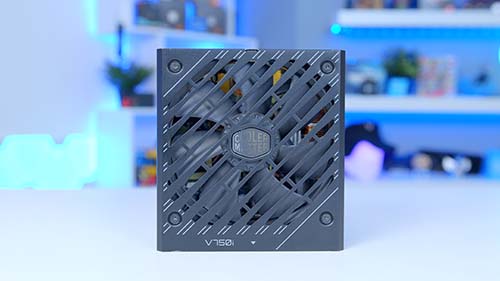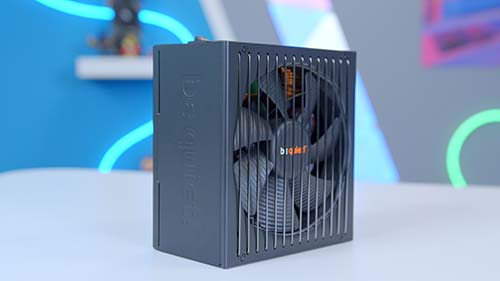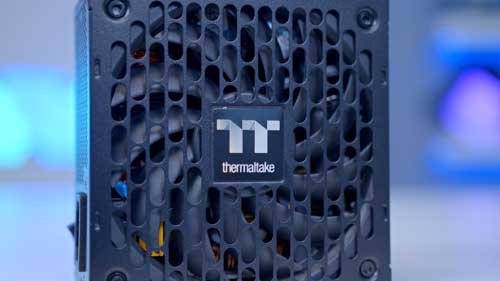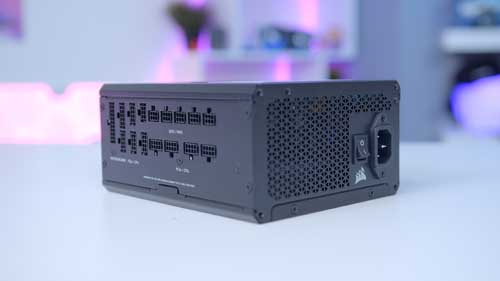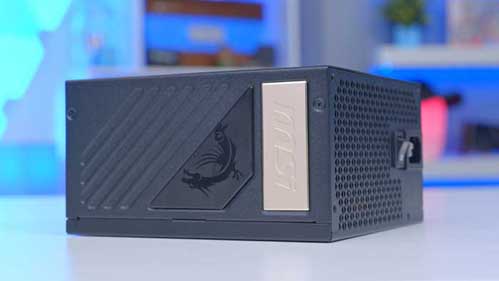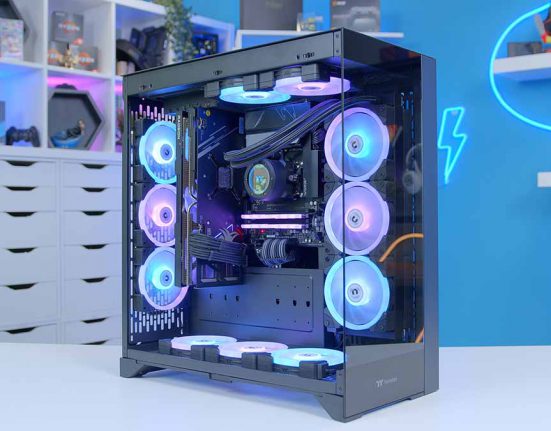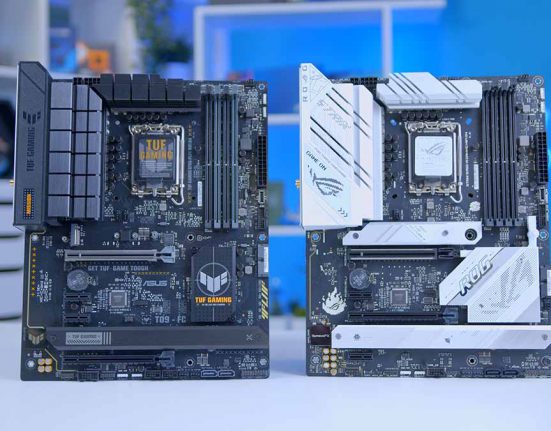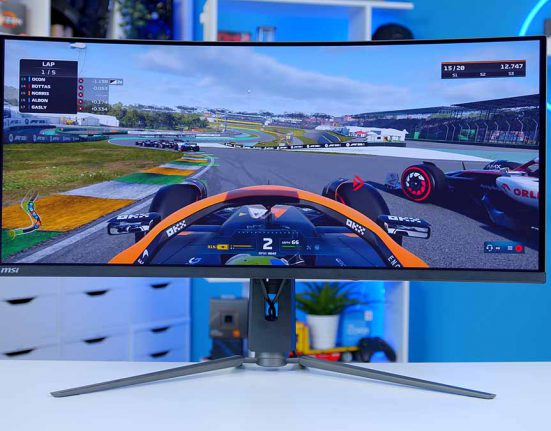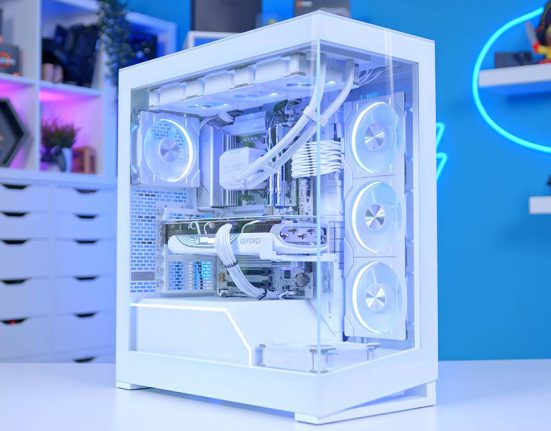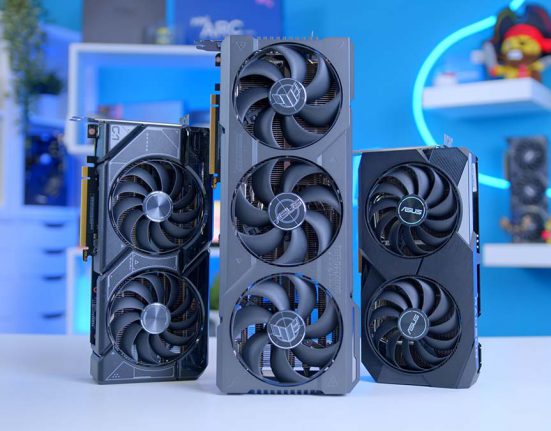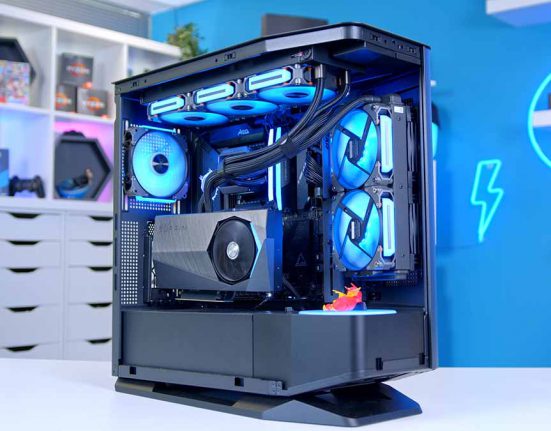Introduction
When putting together the ultimate PC build, the power supply is a component that can quite literally go unnoticed. However, the PSU is an essential part of any system, as it provides the rest of the components with the power needed to let them perform at their best. Because of this, it’s vital for builders to pick a reliable and efficient PSU that will provide enough wattage to power the build comfortably.
However, when searching for the best PSUs on the market, there are several variables to consider, including budget, form factor, efficiency, and modularity. Each of these factors can have a major impact on the value and practicality of a power supply. Because of this, we decided to test a wide range of products to create an extensive breakdown of the best PSUs on the market.
Best Power Supplies to Buy in 2024
1. Corsair CX650
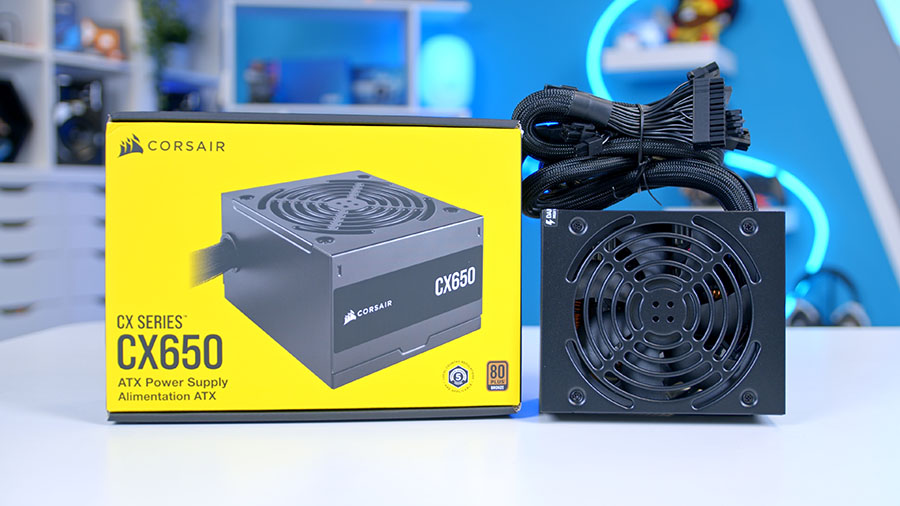
Corsair has produced one of the best budget power supplies, the CX650. Though it only has a 650W power wattage, it is an exceptionally priced PSU and offers some of the best price-to-performance numbers out there. If you’re looking towards the budget end of the market to power your gaming PC, your best bet is the CX650.
On the specs front, the CX650 has dimensions of 150 x 140 x 86 millimeters, making it suitable for fitting into most cases. It also supports a great feature in a zero-RPM fan mode, which will remain silent under lighter loads. An additional bonus for buying the CX650 is the 5 year warranty that Corsair will honour, giving you peace of mind.
| Key Specs | Corsair CX650 |
|---|---|
| Size | ATX |
| Dimensions (L x W x H) | 150 x 140 x 86 mm |
| Wattage | 650W |
| Efficiency Rating | 80 Plus Bronze |
| Modularity | None |
| ATX 3.0 | No |
| Fan Size | 140mm |
| Zero-Fan Mode | Yes |
| Warranty | 5 Years |
Unfortunately, the CX650 doesn’t have modular cables, so it will be more difficult to maintain cable management within your PC build. Additionally, the efficiency rating on the CX650 is only Bronze, so there will be a lot of wasted energy compared to other products.
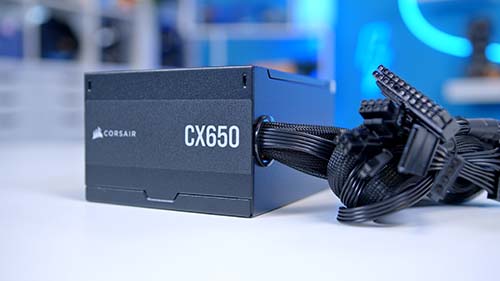
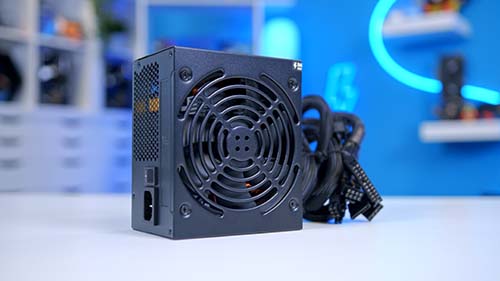
2. Cooler Master V750 i Gold
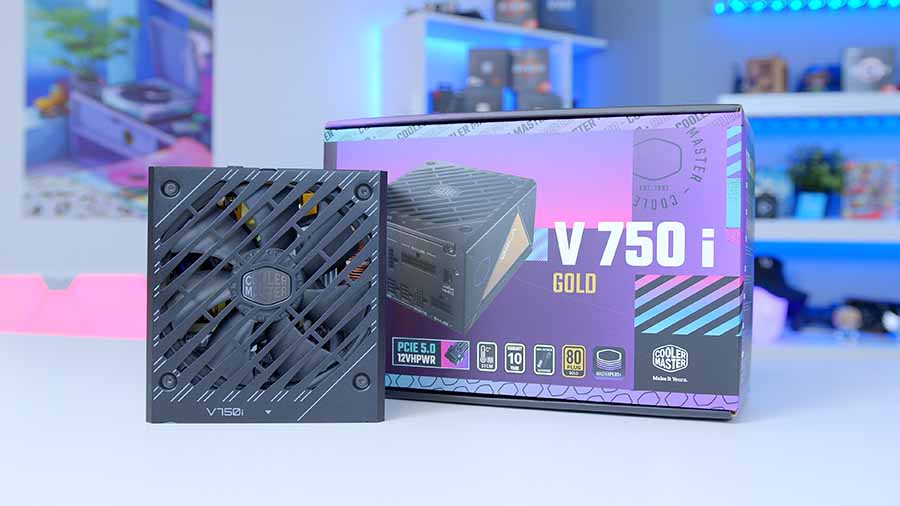
Out of all the 750W power supplies we’ve tested, Cooler Master’s V750 i Gold is the best choice, mainly for its efficiency and practical design. Most PC builds are equipped with modern graphics cards that require at least 650W of power, so a 750W PSU is an essential addition to budget and mid-range gaming PCs.
Awarded with an 80+ Gold efficiency, this PSU will have no issues running these systems, remaining cool and quiet. To help keep the temperatures and noise levels down, the V750 i is packed with a silent 135mm fan, which can handle demanding loads in a mid-range system without too much hassle. In terms of practicality, the V750 i is fully modular, meaning consumers can choose which cables they want to connect, allowing for easier cable management. However, arguably the most appealing aspect of this design is the PCI-E 5.0 support, which unlocks the ability to connect GPUs with a single 12-pin connector instead of relying on multiple connections.
| Key Specs | Cooler Master V750 i Gold |
|---|---|
| Size | ATX |
| Dimensions (L x W x H) | 160 x 150 x 86 mm |
| Wattage | 750W |
| Efficiency Rating | 80 Plus Gold |
| Modularity | Fully |
| ATX 3.0 | Yes |
| Fan Size | 135mm |
| Zero-Fan Mode | Yes |
| Warranty | 10 Years |
Whilst this design from Cooler Master is on the pricier end for a 750W PSU, the optimisation for the latest components and strong efficiency make it a good long-term investment.
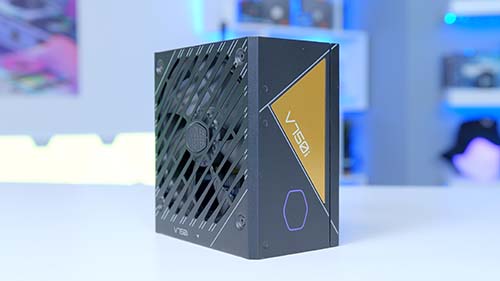
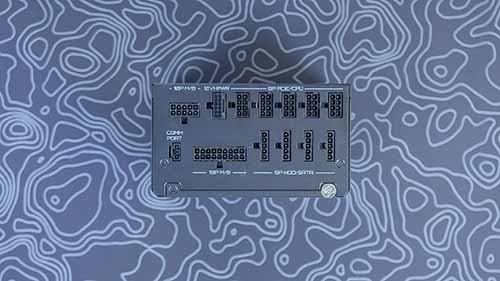
3. ASUS TUF Gaming 750W
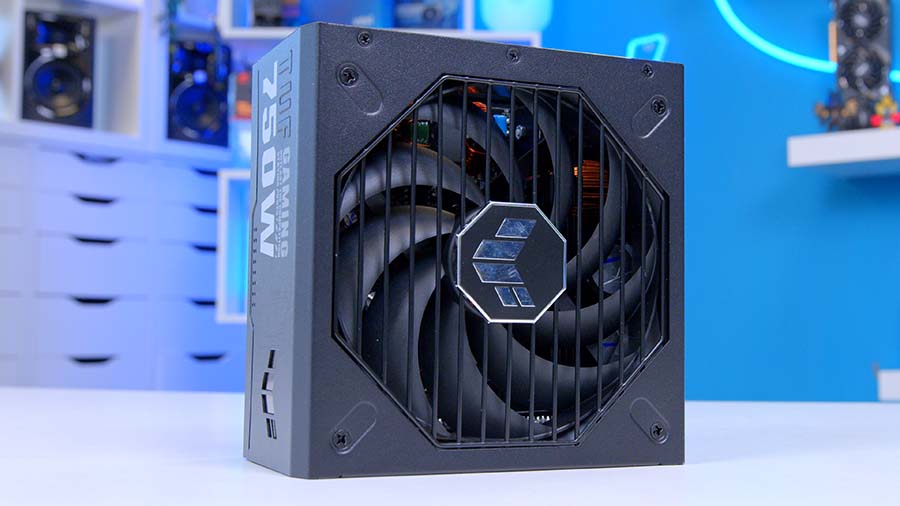
The ASUS TUF Gaming 750W power supply is a very well-rounded PSU and is a great choice if you’re looking for a premium 750W power supply. It also has an efficiency rating of 80 plus Gold, ensuring very little power is lost when running at higher loads and still providing adequate power to fuel your gaming sessions. Its fully modular design and compatibility with ATX 3.0 standards clearly outline its future-proofing features, making it a solid choice for any enthusiast.
The TUF Gaming 750W’s build quality sets it apart from competitor PSUs. It offers exceptional durability and is backed by a 10-year warranty, so there is no concern about this power supply needing to be replaced. The included 135mm fan also supports zero-fan mode, so it will ensure silence under light loads without compromising on cooling.
| Key Specs | ASUS TUF Gaming 750W |
|---|---|
| Size | ATX |
| Dimensions (L x W x H) | 150 x 150 x 86 mm |
| Wattage | 750W |
| Efficiency Rating | 80 Plus Gold |
| Modularity | Fully |
| ATX 3.0 | Yes |
| Fan Size | 135mm |
| Zero-Fan Mode | Yes |
| Warranty | 10 Years |
The price of the ASUS TUF Gaming 750W is quite high for the 750W power supply market, coming in at $100, but ultimately, its price is reflected in a quality product that is set to last.
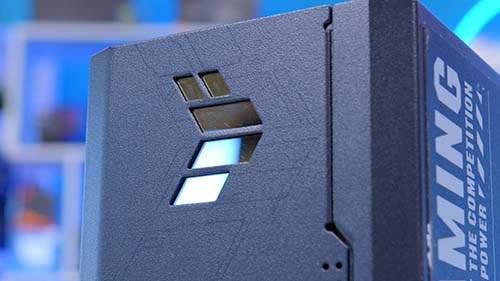
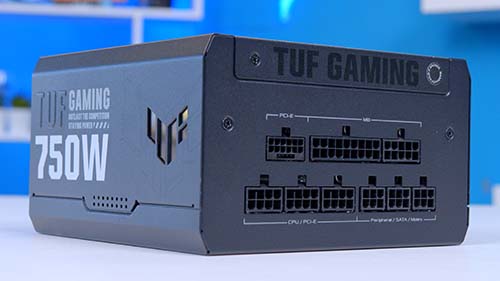
4. Deepcool PX850G
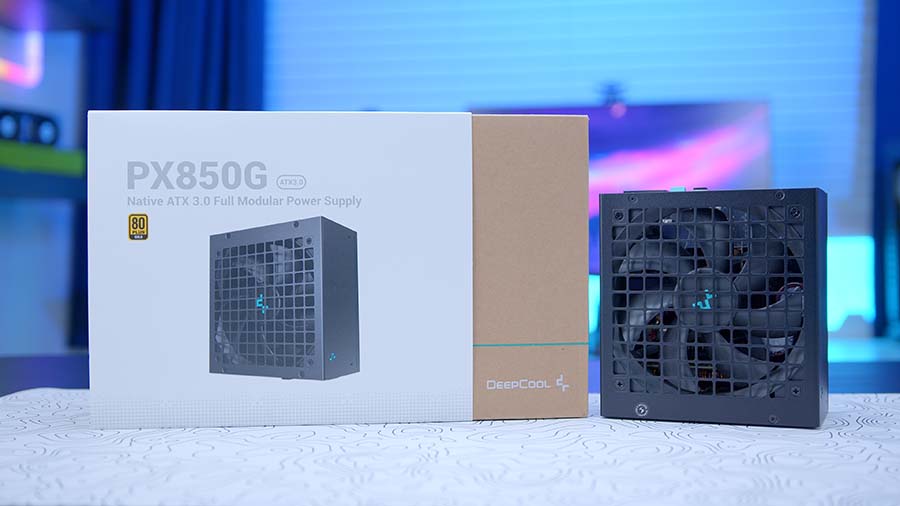
Deepcool’s PX850G is a standout power supply for 850W PSUs. It balances price with incredible high-end performance so enthusiasts can achieve optimum power without overshooting their budget. The PX850G offers good features, including ATX 3.0 compatibility, zero-RPM fans, modular cables, and even colour-coded power connectors, so there is very little to lose when it comes to this power supply.
While the feature set is impressive, it is also exceptional in other areas. It has efficiency ratings of 80 Plus Gold and Cybernetics Gold, indicating that the PX850G will comfortably handle demanding gaming workloads. The PX850G comes in an ATX form factor, too, so you won’t be restricted in what size case you should use.
| Key Specs | Deepcool PX850G |
|---|---|
| Size | ATX |
| Dimensions (L x W x H) | 160 x 150 x 86 mm |
| Wattage | 850W |
| Efficiency Rating | 80 Plus Gold |
| Modularity | Fully |
| ATX 3.0 | Yes |
| Fan Size | 135mm |
| Zero-Fan Mode | Yes |
| Warranty | 10 Years |
Compared to the rest of the 850W power supply market, the PX850G is a pricier option, so if you are looking to cut costs, you may want to find something cheaper. However, for the money, the PX850G has a great selection of features, so it may well be worth the added price.
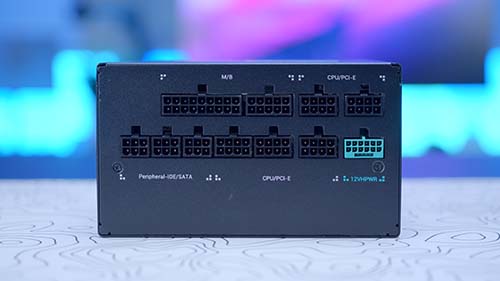
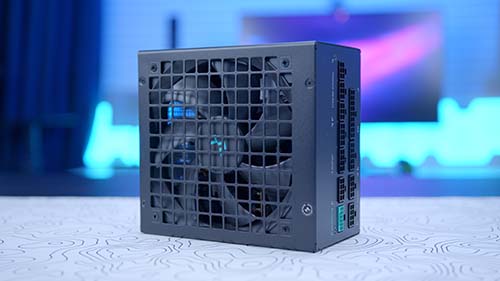
5. BeQuiet Straight Power 12 1000W Platinum
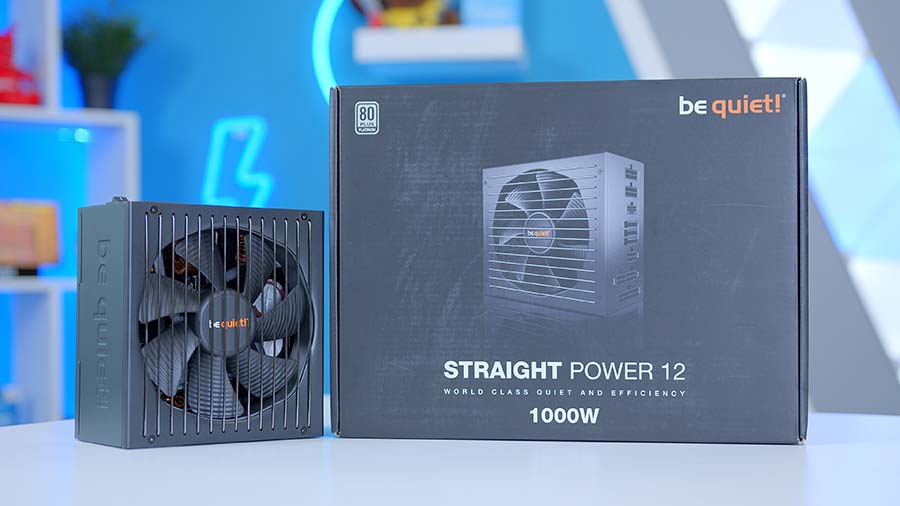
If you are looking for a bit more power in your gaming PC, then the BeQuiet Straight Power 12 1000W is a great choice. Targeted towards top-end gaming PC builds, this power supply offers superior performance and a great range of features without an outrageous price tag.
Offering fully modular cables and the inclusion of ATX 3.0 allows for much easier installation and cable management. What’s more, is that the Straight Power 12 comes with an 80 Plus Platinum efficiency rating, so there is very little wasted power running under load. The general sound levels of this PSU are near silent under heavier loads too, which somewhat negates the missing zero-fan mode.
| Key Specs | BeQuiet Straight Power 12 1000W |
|---|---|
| Size | ATX |
| Dimensions (L x W x H) | 160 x 150 x 86 mm |
| Wattage | 1000W |
| Efficiency Rating | 80 Plus Platinum |
| Modularity | Fully |
| ATX 3.0 | Yes |
| Fan Size | 135mm |
| Zero-Fan Mode | No |
| Warranty | 10 Years |
While the premium efficiency and high wattage of the Straight Power 12 come at a higher price point compared to others in this roundup, its value remains strong for users assembling high-performance, enthusiast-level systems. There are some questions on the durability of the fan within the the Straight Power 12, as the lack of a zero-fan mode means it will always be running when the PC is powered, reducing its lifespan.
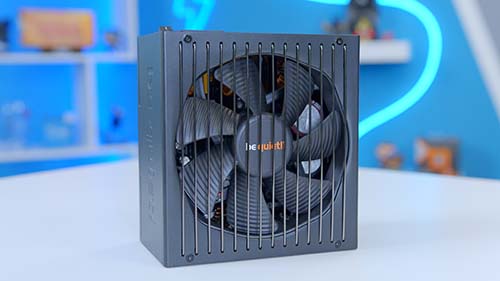
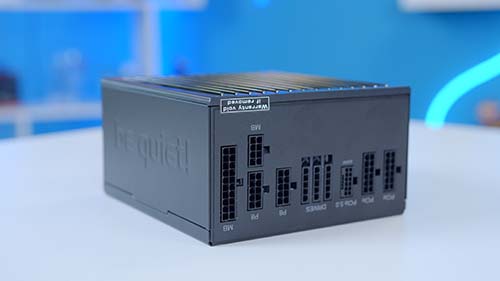
6. Thermaltake Toughpower SFX 1000W
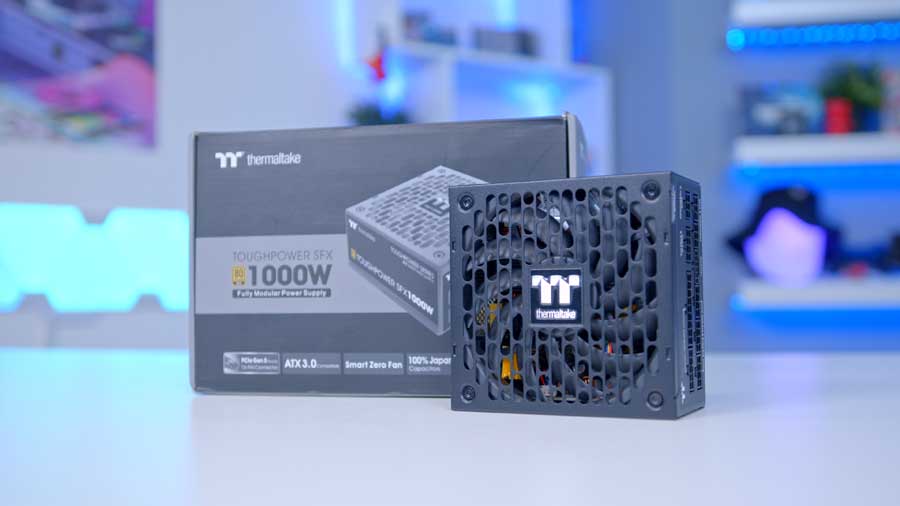
For anyone looking to keep their build compact, the typical ATX form factor won’t be an ideal fit, as they are fairly bulky and therefore need a lot of space within a chassis. Because of this, a SFX power supply will be much better for smaller PC builds, with Thermaltake’s Toughpower SFX 1000W being our pick of the bunch.
This 1000W power supply will easily support the power requirements of most PC builds focusing on high performance, doing so in an efficient manner. With a fully modular design, an 80+ Gold rating, and an ATX 3.0 form factor, this PSU will support the latest hardware with ease.
| Key Specs | Thermaltake Toughpower SFX 1000W |
|---|---|
| Size | SFX |
| Dimensions (L x W x H) | 126 x 125 x 63 mm |
| Wattage | 1000W |
| Efficiency Rating | 80 Plus Gold |
| Modularity | Fully |
| ATX 3.0 | Yes |
| Fan Size | 135mm |
| Zero-Fan Mode | Yes |
| Warranty | 10 Years |
In addition, the smart zero fan mode means the fan will switch itself off when the system load is less than 30%, minimising any background noise. Thanks to the included ATX adapter, the Toughpower SFX can also be installed in an ATX chassis. While this design will also set you back a fair amount of cash, the pricing isn’t bad compared to other 1000W PSUs on the market.
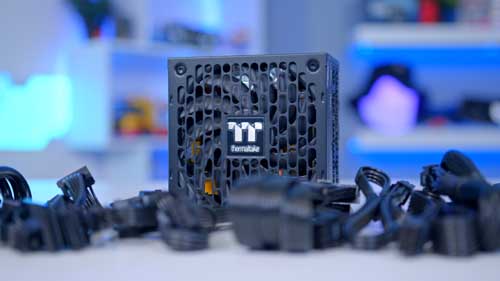
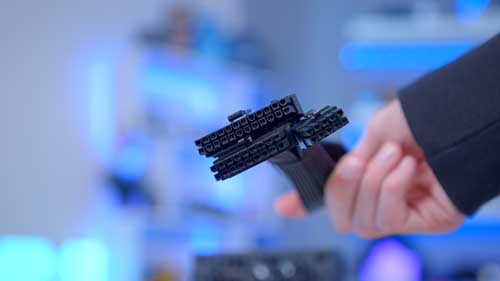
7. Corsair RM1200x Shift
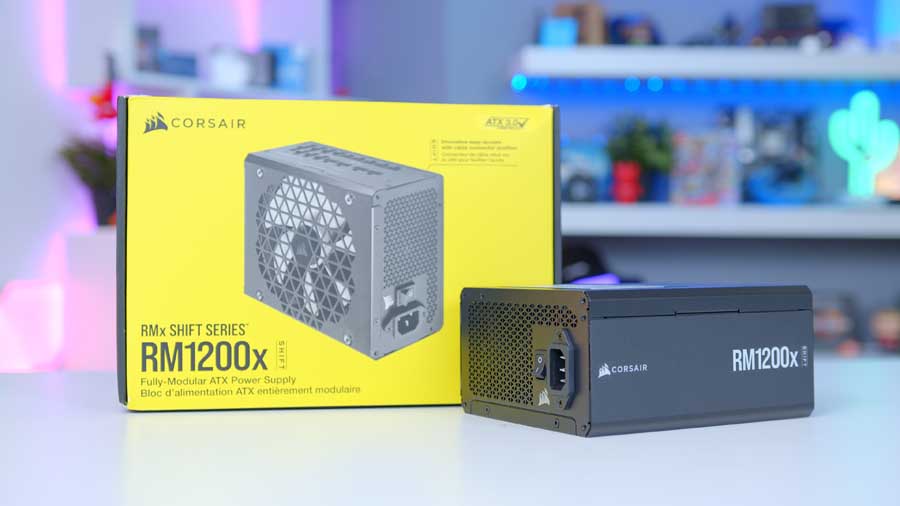
If you’re a PC building aficionado, then Corsair’s RM1200x Shift will be an appealing design to slot into a high-end gaming PC. This design takes the unconventional approach of placing all of the connectors onto the side of the PSU, instead of the back, which will make upgrades and cable management a lot easier.
Whilst the RM1200x SHIFT will be a bit niche for most consumers, there are still plenty of other beneficial features on offer. For example, the zero RPM fan mode allows this PSU to stay silent when under a lower load, which helps with the overall longevity of the design. On top of this, the RM1200x Shift has been awarded 80+ Gold and Cybenetics Gold ratings, suggesting it is fairly efficient.
| Key Specs | Corsair RM1200x Shift |
|---|---|
| Size | ATX |
| Dimensions (L x W x H) | 180 x 150 x 86 mm |
| Wattage | 1200W |
| Efficiency Rating | 80 Plus Gold |
| Modularity | Fully |
| ATX 3.0 | Yes |
| Fan Size | 140mm |
| Zero-Fan Mode | Yes |
| Warranty | 5 Years |
It’s great to see an innovative design that doesn’t come at too much of a premium, but PC builders that are unlikely to make regular upgrades or changes to their system won’t find the sideways cables to be very beneficial, making a cheaper PSU the better purchase. On top of this, some PC cases will struggle to provide the clearance needed for the connectors to sit on the side of the PSU without risking technical issues that could damage the connected components.
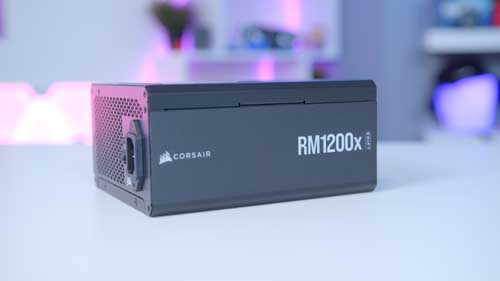
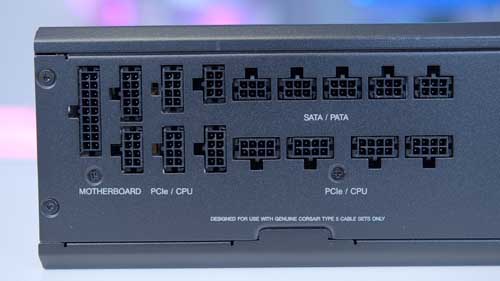
8. MSI Ai1300P 80+ Platinum
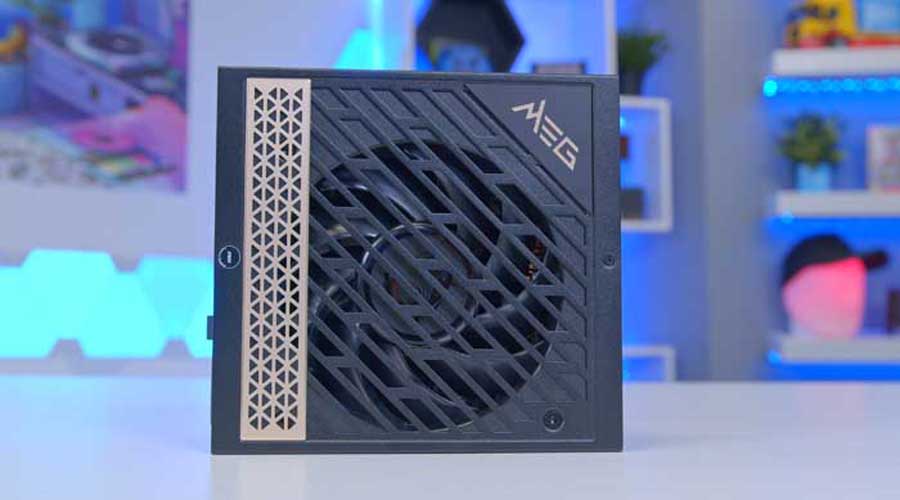
MSI’s Ai1300P 80+ Platinum is a great power supply to use in a luxurious PC build packed with the best hardware on the market. This 1300W PSU has plenty of capacity to support the latest components with ease, even for those planning to double up on specific parts. In addition, the 80+ Platinum rating suggests the Ai1300P will give users peace of mind when pushing their high-end system to its limit.
As you’d expect, this design also comes with PCI-E 5.0 support, full modularity, and a zero fan mode, allowing users to have the most optimised experience possible. For further ease of use, this PSU also includes software support via MSI’s Gaming Intelligence platform.
| Key Specs | MSI MEG Ai1300p |
|---|---|
| Size | ATX |
| Dimensions (L x W x H) | 160 x 150 x 86 mm |
| Wattage | 1300W |
| Efficiency Rating | 80 Plus Platinum |
| Modularity | Fully |
| ATX 3.0 | Yes |
| Fan Size | 120mm |
| Zero-Fan Mode | Yes |
| Warranty | 10 Years |
To match the luxurious nature of this power supply, as well as the builds it is likely to be slotted into, the Ai1300P sports plenty of gold accents throughout its design, which means this PSU will look great in cases that will leave the PSU exposed. Unfortunately, this high-end design comes with an equally high price tag, meaning that even most high-end builders won’t be able to get their hands on this power supply.
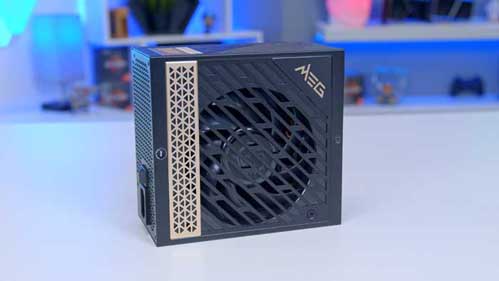
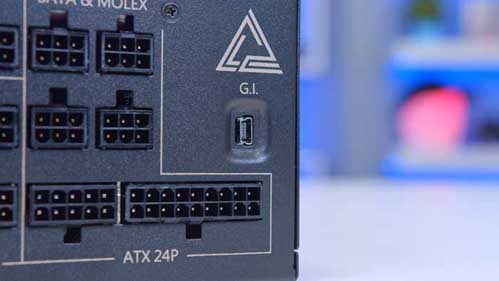
How We Tested the Best PSUs
To decide which PSUs are the best for each type of PC build and which are the outright winners, we tested a wide range of power supplies from various manufacturers. During the testing, we analysed a range of different factors to determine whether a product would be worth considering for consumers. After splitting the PSUs into distinct categories to form a shortlist of the best options within each subclass, we then evaluated the leading designs to pick an overall winner. To do this, we took a range of various factors into consideration, including:
- Efficiency
- Noise Levels
- Modularity & Form Factor
- Design
- Aesthetics
- Features
- Pricing
Frequently Asked Questions
Do I Need an 80 Plus Gold PSU?
We recommend that higher-wattage PSUs use a gold wattage or above, but lower-rated PSUs can get away with a weaker efficiency rating, like Bronze.
Do I Need An ATX 3.0 Unit?
While ATX 3.0 supported power supplies will be useful for those with an RTX 4000 graphics cards, or those that plan on upgrading in the near future. ATX 3.0 isn’t necessary for all PC builds.
Do I Need a Fully Modular Power Supply?
While picking up a fully modular power supply will help with cable management, you’ll often find that semi-modular, or even non-modular units will be suitable for your build.


![FI_[AW] Best PSUs_1.3.1 - GeekaWhat](https://geekawhat.com/wp-content/uploads/2023/11/FI_AW-Best-PSUs_131.jpg)
